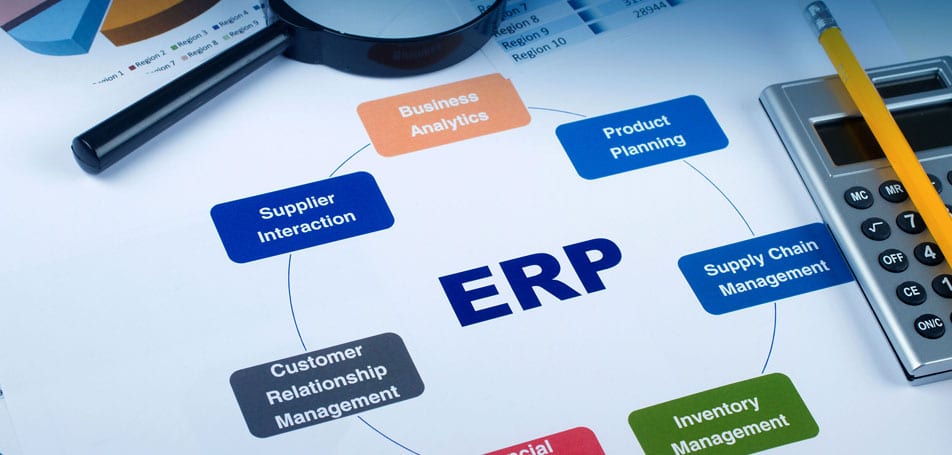
When shopping online, customers expect a seamless, streamlined experience that makes the purchasing experience as painless as possible. B2B companies, in particular, need some way to sell their products efficiently while providing customers with an accessible view of their product’s status. The secret lies in ERP software. A B2B eCommerce ERP integration is exactly what you need to streamline your online storefront and keep it perfectly in sync with the rest of your business, regardless of how your business runs.
B2B Marketing vs. B2C Marketing
Depending on your business, your eCommerce needs will change. Business-to-business enterprises focus entirely on selling products or services directly to other companies. This means B2B sellers work primarily with large-scale retailers, wholesale companies, nonprofits, and product resellers. The average consumer won’t see what goes on behind the scenes, but B2B marketing is essential nonetheless.
Business-to-consumer enterprises sell their products and services directly to consumers. They usually rely on B2B products to help streamline business operations so everyday shoppers get a streamlined experience. Both business models require tools to manage company resources, log sales, update inventory, and report on financial performance.
eCommerce in the B2B Space
For B2B companies, selling things online isn’t as straightforward as setting up an Amazon or Shopify page. Since these companies work on a much larger scale and sell directly to other companies, a B2B enterprise’s marketing must reflect that. Because of this, sales demands are usually much higher and more stringent than B2C enterprises.
These days, businesses expect an experience similar to everyday consumers. However, B2B purchases aren’t just one-and-done exchanges like in B2C transactions. B2B businesses need to establish long-term relationships with their customers and streamline the communication-heavy process. Online spaces are ideal for this kind of work.
What is ERP?
Enterprise resource planning, or ERP, refers to software businesses use to organize their information. From accounting to inventory management to order fulfillment and financial reporting, ERP programs do it all. They’re a great way to help keep your business running smoothly and organized.
How ERP Integration Helps Businesses
When talking about a B2B eCommerce ERP integration, we’re referring to using digital ERP software to connect your physical and online presence. Ultimately, this process keeps all your business information synchronized, so there are no discrepancies to work through. A B2B eCommerce ERP integration is more essential now than ever, as online shopping (both inside and outside the B2B space) has reached an all-time high. Generally, online ERP integration helps businesses by:
- Providing synchronized, easily accessible data readings of a company’s business statistics.
- Reduce chances for error caused by manual data entry and isolated data collection systems.
- Speed up the data collection process.
- Provide customers with accessible, up-to-date information about payments, shipments, and other consumer-side aspects of your business.
- Save money overall by eliminating the need for multiple data collection programs and allowing employees to focus on what they were hired for instead of typing in piles of data.
One of the most common ways we see eCommerce ERP integration in the workplace is through online order fulfillment: the ERP software logs inventory numbers and individual orders, making it easy for business orders to view product quantities as needed. An integrated ERP software will also log any in-store purchases, so there are no discrepancies between the two storefronts. Some software even organizes and reports how shoppers receive their orders when ordering online or in-store.
How ERP Integration can Help Your B2B Enterprise
For a B2B company, ERP integration is still an excellent way to manage your business. However, there are some concrete examples of how ERP integration benefits your business besides order fulfillment.
For example, B2B eCommerce integration can help provide your online storefront with different ways to pay for orders. The software tracks large purchases, how companies pay for them, and how much product a company orders. This is especially great for subscription businesses because business owners can adjust subscription service or bulk buying plans to better fit what sells.
Getting Started with ERP Integration
Successful B2B eCommerce ERP integration requires a bit of planning; for your integration process to go smoothly, you’ll need to understand how you want your data to flow through the system. Then, you’ll need to set up a migration plan so you can efficiently move all of your business’ information to the new software. Fortunately, you don’t have to do this alone! Schedule some time with us to get started with your eCommerce integration today!













